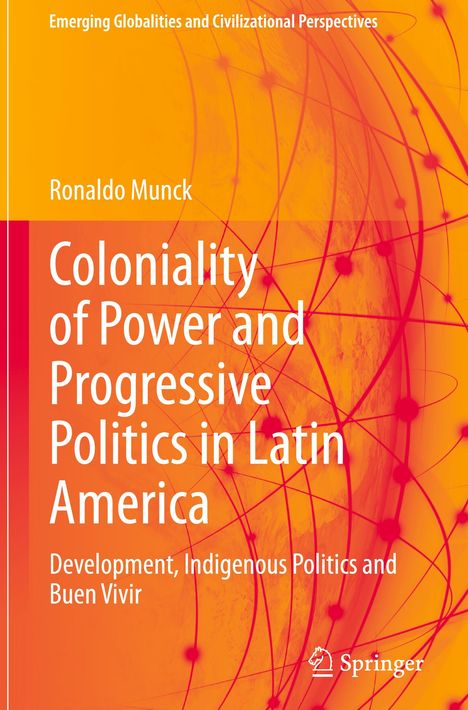Ronaldo Munck: Coloniality of Power and Progressive Politics in Latin America, Gebunden
Coloniality of Power and Progressive Politics in Latin America
Buch
- Development, Indigenous Politics and Buen Vivir
lieferbar innerhalb 2-3 Wochen
(soweit verfügbar beim Lieferanten)
(soweit verfügbar beim Lieferanten)
Aktueller Preis: EUR 131,42
- Verlag:
- Springer Nature Switzerland, 05/2024
- Einband:
- Gebunden, HC runder Rücken kaschiert
- Sprache:
- Englisch
- ISBN-13:
- 9783031543333
- Artikelnummer:
- 11856327
- Umfang:
- 168 Seiten
- Nummer der Auflage:
- 2024
- Ausgabe:
- 2024
- Gewicht:
- 424 g
- Maße:
- 241 x 160 mm
- Stärke:
- 15 mm
- Erscheinungstermin:
- 2.5.2024
- Hinweis
-
Achtung: Artikel ist nicht in deutscher Sprache!
Klappentext
This book makes the powerful argument that Latin America needs to be a more central part of the discourse on emerging globalities and in the pursuit of an inter-civilizational focus to avoid West-centric perspectives. It deploys a cultural political economy approach that sees the global political economy as inescapably cultural and allows us to avoid the hyper-rational analysis of economics. It explores various aspects of contemporary Latin America from the revival of dependency theory, the pink tide governments since 2000 and, in particular, the potential of the Andean Buen Vivir political philosophy, to offer a distinctive paradigm for sustainable global development.The book provides a de-colonial frame and shows how many recent and new social science perspectives emerging globally are connected with Latin American scholars and Latin American social experiments: namely, dependency, decolonial and post-colonial epistemologies, post-neoliberalism, and the notion ofPluriverse. The book focuses on the cultural, the ethical, the economic and the political, and environmental dimensions of this transformation, which represents a reaction and alternative to the Western cultural, including ethical, economic, political, environmental crises.
The readership for this book includes all who are fascinated by the globalization lens on the one hand, and the experience and lessons of Latin America on the other hand.
Biografie
Ronaldo Munck is Theme Leader: Internationalization, Interculturalism and Social Development in the President's Office, Dublin City University, and Visiting Professor of Political Sociology, University of Liverpool, UK.
Ronaldo Munck
Coloniality of Power and Progressive Politics in Latin America
Aktueller Preis: EUR 131,42
